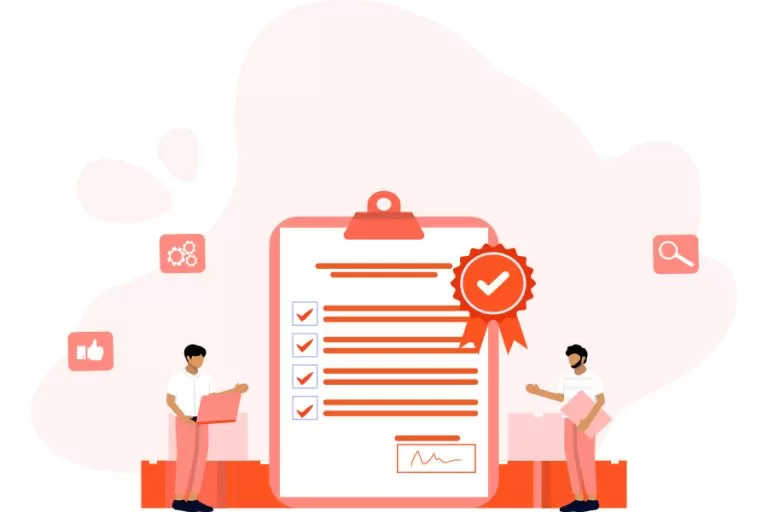Imagine delivering consistently fair training programmes that are up to mark, efficient and tick all the boxes for your learners. Well, that’s the magic of Internal Quality Assurance. But what is Internal Quality Assurance exactly? Whose job is it or who keeps these assessments and training programmes on track and makes sure all the quality standards are met? The simple answer: Internal Quality Assurer.
In this blog, we will discuss the roles and responsibilities, what importance the process holds and how you can become an IQA.

Understanding the Concept of Internal Quality Assurance
IQA (Internal Quality Assurance) is the process of monitoring and ensuring all the assessment processes adhere to the set industry standards in an organisation. The whole process or system makes sure that all the activities that are carried out are consistent, fair and reliable and all the learners are given an equal chance to pass their qualification.
To ensure every learner is assessed and trained fairly, a professional Internal Quality Assurer is required to oversee the process.
Internal Quality Assurer: Roles and Responsibilities
Internal Quality Assurers, often called Internal Verifiers (IV) are responsible for ensuring that assessment and learning operations run smoothly within an organisation. From learners’ enrolment to the examination, they are responsible for monitoring everything in between.
Other than learners’ progress they are also accountable for monitoring assessors and trainers to make sure their methods are in line with the rules set by the awarding organisation.
Providing Constructive Feedback
One of the main responsibilities of an internal verifier is to provide constructive feedback to learners. The feedback could be either written or verbal and is given at any stage of the learning or training. This may include providing advice and guidance regarding any issue that may arise during learning. For instance, the IV can suggest learners adopt a different approach to completing a task.
Ensuring Compliance
Another major responsibility of an Internal Quality Assurer is to make sure all the designed and offered qualifications adhere to relevant laws and regulations and established standards. These include both internal standards, set by the organisation, and external regulations of the awarding body. On top of that, they must stay relevant to any updates in the legislation so that assessments are delivered accordingly.
Simultaneously, they monitor and keep a record of all processes, procedures and activities related to assessment to ensure learners are being catered to according to and throughout their learning.
The mentioned responsibilities are just the tip of the iceberg, an IQA has numerous responsibilities when working in the education and training sectors. Though their specific tasks may vary and depend on the organisation they work in, their general role includes the following:
- Developing and implementing quality assurance processes, procedures and systems.
- Supervising the performance of trainers to ensure they are following the standards of awarding organisations.
- Providing guidance and support to assessors and trainers so they can improve their assessment practice.
- Working with employees, trainers and assessors to ensure quality standardisation of assessment practice.
- Sampling assessment records and discussions.
- Ensuring support, advice and guidance to assessors, and other supporting staff, such as through standardisation meetings.
- Facilitating the most effective practices and methods throughout the educational sector.
- Planning and preparing for monitoring activities, including determining when and how the monitoring will take place.

How Can You Become an Internal Quality Assurer
To be an internal verifier is a highly regarded job and is widely required in numerous organisations and industries worldwide. There are 3 IQA qualifications, out of which 2 can make you a qualified IQA; the qualification you require depends on what you wish and intend to use it for, once qualified. However, to gain any of these qualifications, it is preferable to become a qualified assessor first.
Here are 3 IQA Qualifications, each containing different levels of responsibilities:
Level 4 Award in IQA: Understanding Key Processes and Practices
This Level 4 Award in Understanding the Internal Quality Assurance of Assessment and Practices qualification is the most basic of all others, and completely theoretical. It would not, however, allow you to perform as a qualified internal quality assurer. But it is perfect to equip you with all the knowledge and understanding of the internal quality assurance requirements in an assessment process. Once completed, you will get a good idea of the concepts and techniques for monitoring and maintaining IQA within an organisation. This qualification is mostly relevant to individuals working in roles related to internal quality assurance within educational institutions or training providers, such as SIA training, vocational teaching etc.
Level 4 IQA Qualification: Internal Quality Assurance of Assessment Processes and Practices
This Level 4 Award in the Internal Quality Assurance of Assessment Processes and Practices qualification is generally suitable for individuals who have responsibilities related to monitoring and maintaining the quality of assessment processes, ensuring they meet the required standards and regulations, also perfect for those who aspire to become an internal verifier within an organisation. Once completed, you can manage, maintain and evaluate the quality of the assessment.
Level 4 IQA Certificate: Leading the Internal Quality Assurance of Assessment Processes and Practices
This Level 4 Certificate in Leading the Internal Quality Assurance of Assessment Processes and Practices is the ideal qualification if you want to become the lead IQA in your organisation; a stepping stone for individuals working towards their career growth. Once this qualification is achieved, you will not only be able to quality assure the assessment process, but also lead and maintain the team of internal verifiers and assessors in your organisation.

Conclusion
To sum up, change and development are inevitable in any industry, whether it’s new technology or innovative ways of doing things. If you are in assessment or teaching, it is hard to catch up and easy to fall behind with the industry’s changes. This is where the Internal Quality Assurer comes into play; the job of an IQA is to make sure the assessment process is fair and consistent in any organisation. They are also responsible for making sure each assessor and trainer is up to date with their work and aligned with the awarding body’s laws and regulations. Above all, they ensure assessment is carried out fairly, learners meet their special needs and recording standards for assessment.



